Understanding EU’s and Poland’s RES Goals

In October 2023, the European Union adopted a revision of the directive promoting the development of renewable energy, setting new, higher targets for the community. In Forum Enegrii's report "Understanding EU's and Poland's Renewable Energy Goals", we analyze how the EU targets translate into the realities of Poland and other EU countries.
Read More
Understanding EU’s and Poland’s RES Goals
In October 2023, the European Union adopted a revision of the directive promoting the development of renewable energy, setting new, higher targets for the community. In Forum Enegrii's report "Understanding EU's and Poland's Renewable Energy Goals", we analyze how the EU targets translate into the realities of Poland and other EU countries.

Planning Poland’s Climate and Energy strategies in a new political opening

Poland’s new coalition government has declared a new opening in energy policy and offers much more ambitious transition goals, although the details of which are yet to be worked out. One of the first tasks of the new government is to propose a series of climate and energy strategies. Polarised opinions, attempts at disinformation, and political tension will make creating these guiding documents quite difficult. The preparation of the country's new energy and climate policy should be underpinned by sound analyses to justify the choices made. A council composed of the country's leading experts should be established to be a substantive voice in the process.
Read More
Planning Poland’s Climate and Energy strategies in a new political opening
Poland’s new coalition government has declared a new opening in energy policy and offers much more ambitious transition goals, although the details of which are yet to be worked out. One of the first tasks of the new government is to propose a series of climate and energy strategies. Polarised opinions, attempts at disinformation, and political tension will make creating these guiding documents quite difficult. The preparation of the country's new energy and climate policy should be underpinned by sound analyses to justify the choices made. A council composed of the country's leading experts should be established to be a substantive voice in the process.

Beyond 60% RES in Poland by 2030 - cooperation between Forum Energii and Enercode

To lead an effective energy transition, you need not only regulations, but also good, modern computing tools. The world is changing rapidly - the winner will be the one who is able to plan strategically, but also react to changes and minimize costs. In order to meet these challenges, the Energy Forum, together with Enercode, has taken on the task of building an open energy model that will support the planning of the modernization of the Polish energy sector, taking into account the acceleration of the development of renewable energy sources.
Read More
Beyond 60% RES in Poland by 2030 - cooperation between Forum Energii and Enercode
To lead an effective energy transition, you need not only regulations, but also good, modern computing tools. The world is changing rapidly - the winner will be the one who is able to plan strategically, but also react to changes and minimize costs. In order to meet these challenges, the Energy Forum, together with Enercode, has taken on the task of building an open energy model that will support the planning of the modernization of the Polish energy sector, taking into account the acceleration of the development of renewable energy sources.

Potential of cable pooling in Poland
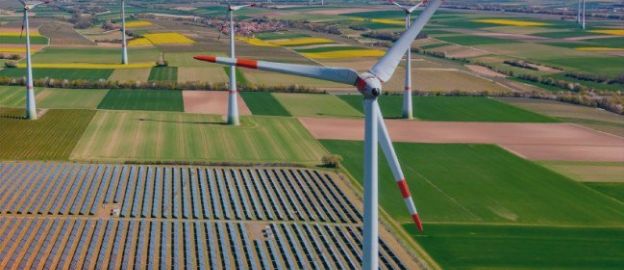
The development of renewable energy sources is one of the most urgent needs of the Polish energy system. RES lower energy costs, reduce emissions and increase energy security. However, although energy companies, industry, local authorities and individual consumers are interested in investments in RES, the further development of new, emission-free energy sources has been a challenge. One of the main problems is the denial of connection capacity to new RES investments. In addition to the necessary grid investments, a more efficient use of the existing infrastructure is needed to solve this problem. One of the tools available is cable pooling - enabling the interconnection of RES sources.
Read More
Potential of cable pooling in Poland
The development of renewable energy sources is one of the most urgent needs of the Polish energy system. RES lower energy costs, reduce emissions and increase energy security. However, although energy companies, industry, local authorities and individual consumers are interested in investments in RES, the further development of new, emission-free energy sources has been a challenge. One of the main problems is the denial of connection capacity to new RES investments. In addition to the necessary grid investments, a more efficient use of the existing infrastructure is needed to solve this problem. One of the tools available is cable pooling - enabling the interconnection of RES sources.
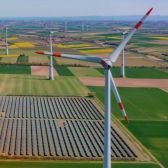
Energy transition in Poland | 2023 edition

2022 was another year of unexpected events. Russia’s full-scale invasion of Ukraine changed Europe’s approach to fossil fuel imports, particularly from Russia. The resulting energy crisis triggered by high gas prices and the decline in nuclear and hydroelectric production led to record high energy prices across Europe. These events are changing the way European countries look at the energy transition. Meanwhile, the modernisation of the Polish energy sector is still very slow. An overview of the increasingly comprehensive data on the energy sector is published by Forum Energii in the sixth edition of the report ‘Energy Transition in Poland. Edition 2023’.
Read More
Energy transition in Poland | 2023 edition
2022 was another year of unexpected events. Russia’s full-scale invasion of Ukraine changed Europe’s approach to fossil fuel imports, particularly from Russia. The resulting energy crisis triggered by high gas prices and the decline in nuclear and hydroelectric production led to record high energy prices across Europe. These events are changing the way European countries look at the energy transition. Meanwhile, the modernisation of the Polish energy sector is still very slow. An overview of the increasingly comprehensive data on the energy sector is published by Forum Energii in the sixth edition of the report ‘Energy Transition in Poland. Edition 2023’.

To accelerate the development of RES
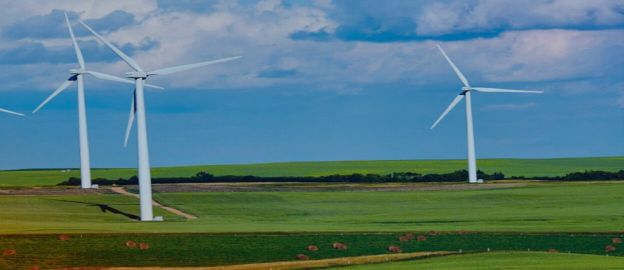
The Polish energy system urgently needs an accelerated development of new renewable capacity. Work is underway in the Polish parliament to liberalise the 10 H distance rule, which stemmed development of onshore wind. Changing this rule is one of the most important decisions on which the success of Poland's energy transition lies. The seemingly small change in the location of investments from the originally planned 500 m to 700 m from residential buildings - is a significant reduction in the potential for wind energy development.
Read More
To accelerate the development of RES
The Polish energy system urgently needs an accelerated development of new renewable capacity. Work is underway in the Polish parliament to liberalise the 10 H distance rule, which stemmed development of onshore wind. Changing this rule is one of the most important decisions on which the success of Poland's energy transition lies. The seemingly small change in the location of investments from the originally planned 500 m to 700 m from residential buildings - is a significant reduction in the potential for wind energy development.
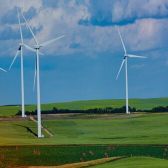
Renewables can reduce fuel imports
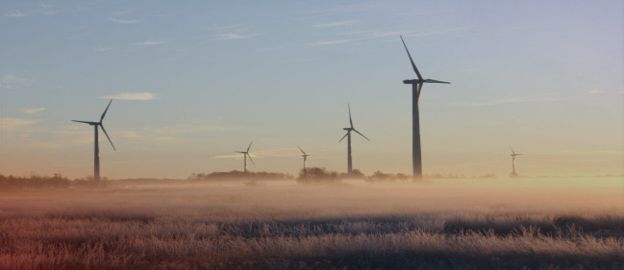
Last year the import of gas, oil and coal cost Poland PLN 89 billion. This year, it will be much more - by the end of June it already amounted to PLN 85 billion. The supply crunch and spike in fuel prices have become the source of an economic and energy crisis, and a means of exerting pressure on Europe. Meanwhile, renewables not only reduce emissions and energy prices, but also import dependency on energy resources.
Read More
Renewables can reduce fuel imports
Last year the import of gas, oil and coal cost Poland PLN 89 billion. This year, it will be much more - by the end of June it already amounted to PLN 85 billion. The supply crunch and spike in fuel prices have become the source of an economic and energy crisis, and a means of exerting pressure on Europe. Meanwhile, renewables not only reduce emissions and energy prices, but also import dependency on energy resources.

Energy transition in Poland | 2022 Edition

On top of the economic slowdown in 2020 caused by the COVID-19 pandemic, 2021 was the next year when the cards dealt unexpected circumstances that diverged from the previous years of stability. In Europe, we experienced an energy crisis marked by sharp spikes in gas prices and CO2 emission costs. The wartime reality of 2022 means even more uncertainty and market volatility with energy security and independence from imported raw materials becoming the most important topics. Poland continues drifting along in the modernisation of the energy sector, as clearly indicated by data collected by Forum Energii in its annual report “Energy Transition in Poland”.
Read More
Energy transition in Poland | 2022 Edition
On top of the economic slowdown in 2020 caused by the COVID-19 pandemic, 2021 was the next year when the cards dealt unexpected circumstances that diverged from the previous years of stability. In Europe, we experienced an energy crisis marked by sharp spikes in gas prices and CO2 emission costs. The wartime reality of 2022 means even more uncertainty and market volatility with energy security and independence from imported raw materials becoming the most important topics. Poland continues drifting along in the modernisation of the energy sector, as clearly indicated by data collected by Forum Energii in its annual report “Energy Transition in Poland”.

10 steps to overcome the energy crisis

The prices of coal, gas, and CO2 are reaching record levels while the price for electricity is galloping, causing panic among politicians, energy consumers, and institutions responsible for maintaining Poland’s energy security.
Read More
10 steps to overcome the energy crisis
The prices of coal, gas, and CO2 are reaching record levels while the price for electricity is galloping, causing panic among politicians, energy consumers, and institutions responsible for maintaining Poland’s energy security.

Distribution grids and electromobility. Planning and development

In recent days, British Prime Minister Boris Johnson announced an acceleration in the development of electromobility. By 2030, 145,000 charging points are to be built in Britain, and from 2022 all new residential and office buildings will have to be equipped with chargers. This is just one of the announcements of the global revolution in transportation. In Poland the pace and character of changes have different dimension. The National Fund for Environmental Protection and Water Management (NFOŚiGW) has just announced a programme of subsidies for the construction of charging stations for electric and hydrogen vehicles as well as PLN 1 billion support for operators to develop distribution networks.
Read More
Distribution grids and electromobility. Planning and development
In recent days, British Prime Minister Boris Johnson announced an acceleration in the development of electromobility. By 2030, 145,000 charging points are to be built in Britain, and from 2022 all new residential and office buildings will have to be equipped with chargers. This is just one of the announcements of the global revolution in transportation. In Poland the pace and character of changes have different dimension. The National Fund for Environmental Protection and Water Management (NFOŚiGW) has just announced a programme of subsidies for the construction of charging stations for electric and hydrogen vehicles as well as PLN 1 billion support for operators to develop distribution networks.

Microinstallations on a turning point | How to secure the future of distributed energy in Poland?
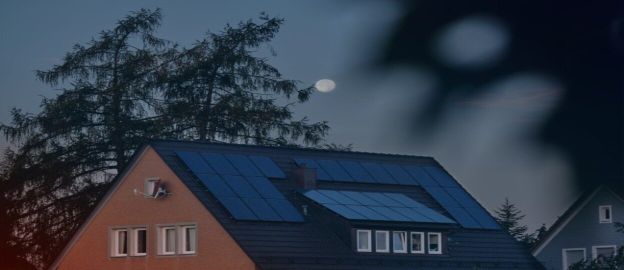
In recent years, over 600,000 households and businesses have invested in their own solar installations, and approximately 35,000 jobs have been created in companies offering services in this segment. This is the biggest, albeit unplanned, success of the Law and Justice government in the energy sector. However, further expansion of micro-installations in Poland is questionable - the government is planning changes in the rules governing this dynamically developing energy sector. This is an operation on a living organism, therefore surgical precision is needed in introducing changes - a transparent process, clear intentions and time that will allow the newly established sector and energy companies to prepare for the transition.
Read More
Microinstallations on a turning point | How to secure the future of distributed energy in Poland?
In recent years, over 600,000 households and businesses have invested in their own solar installations, and approximately 35,000 jobs have been created in companies offering services in this segment. This is the biggest, albeit unplanned, success of the Law and Justice government in the energy sector. However, further expansion of micro-installations in Poland is questionable - the government is planning changes in the rules governing this dynamically developing energy sector. This is an operation on a living organism, therefore surgical precision is needed in introducing changes - a transparent process, clear intentions and time that will allow the newly established sector and energy companies to prepare for the transition.

FIT FOR 55 - what will the package contain?

On 14 July, the European Commission will publish the Fit for 55 package consisting of several legislative proposals. This will officially launch the discussion on measures to achieve the interim EU climate neutrality target, i.e. a 55% reduction of CO2 emissions compared to 1990. Before these rules finally come into force, they have to be accepted by EU member countries (i.e. the Council) and the European Parliament. The negotiations will take at least a year, most likely - two. The changes will not be law until 2024, but it is high time we considered how to implement them for the benefit of the climate and the economy.
Read More
FIT FOR 55 - what will the package contain?
On 14 July, the European Commission will publish the Fit for 55 package consisting of several legislative proposals. This will officially launch the discussion on measures to achieve the interim EU climate neutrality target, i.e. a 55% reduction of CO2 emissions compared to 1990. Before these rules finally come into force, they have to be accepted by EU member countries (i.e. the Council) and the European Parliament. The negotiations will take at least a year, most likely - two. The changes will not be law until 2024, but it is high time we considered how to implement them for the benefit of the climate and the economy.
